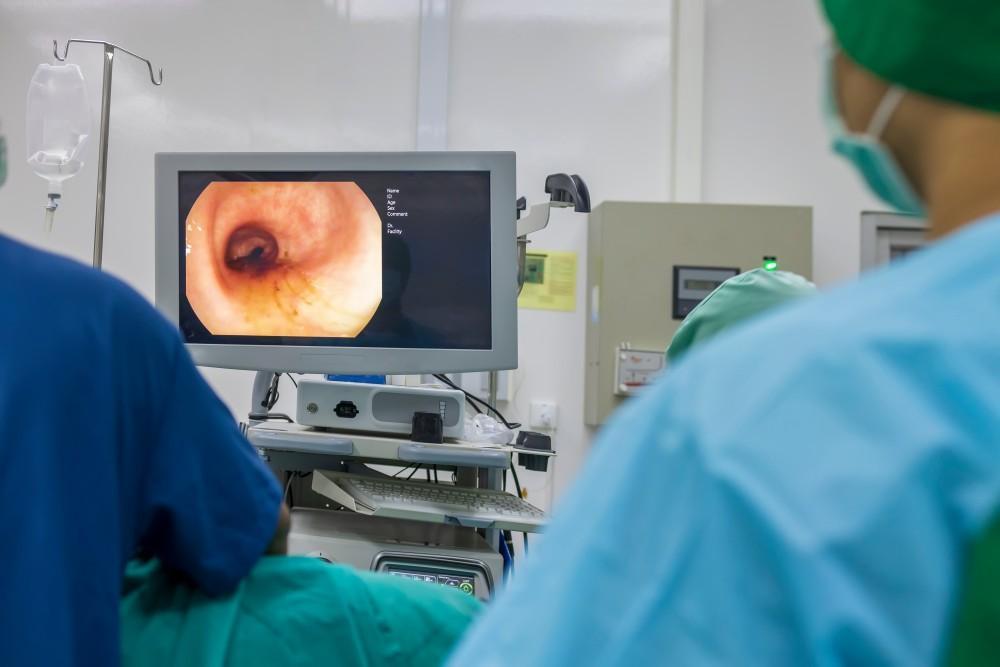
The Difference Between Anal and Colon Cancer

Colorectal cancer accounts for almost 8% of all cancers in the United States. The lifetime risk for developing cancer in the colon or rectum is about 1 in 23 for men and 1 in 26 for women.
In contrast, anal cancer is rare, especially in young people. Over the course of a lifetime, most women and men only have a 1 in 500 risk.
Even though both anal cancer and colon cancer are located in the large intestine, key differences exist between these two types of cancer. The differences influence both risks and treatment.
If you have colon cancer or anal cancer, our colorectal experts at Colon and Rectal Surgeons of Greater Hartford help you understand your disease and your treatment options. Following are the key differences and similarities between anal cancer and colon cancer.
Location is different
Even though the colon and anus are connected, colon cancer and anal cancer are in discrete areas of the large intestine. Your colon is the main portion of your large intestine. Its job is to absorb water and nutrients from the food you eat and produce stool.
Your colon leads into another portion of the large intestine called the rectum. The rectum is the small portion that connects the colon to the anus. The rectum stores stool until you’re ready to pass it.
Your anus is the final part of your digestive system. It’s the opening that pushes stool out of your body. The anus is formed both of intestinal cells and skin cells. It contains two muscles, called sphincter muscles, that open and close the opening so you can either retain stool or pass it.
Cell types are different
The most important difference between colon cancer and anal cancer is that each is caused by a different type of cancer cell. In 90% of cases, anal cancer is caused by infection with the human papilloma virus (HPV). Anal cancer is a squamous cell cancer. Squamous cell cancers occur in the skin-like cells that line the anal canal.
In contrast, colon cancer is an adenocarcinoma, which derives from glandular cells, not skin cells. The cancer may extend into the anus, but it’s still considered colon cancer because of the cell type. Colon cancer isn’t caused by HPV.
Symptoms are similar, but not identical
Both colon cancer and anal cancer may cause alterations in your bowel habits, such as diarrhea or constipation. However, each has its own set of symptoms, too.
Colon cancer
- Blood in stool
- Anemia
- Extremely narrow stools
- Gas pain
- Bloating or fullness
- Cramps
- Weight loss
- Feeling like stool doesn’t completely evacuate
Anal cancer
- Bleeding from anus or rectum
- Lump near the anus
- Itching or discharge from anus
- Pain or pressure around anus
If you have any of the above symptoms, please contact us immediately for an evaluation and diagnosis.
Treatments differ
Due to the varied locations and different types of cells involved, treatment for anal cancer and colon cancer are slightly different.
Anal cancer
Most anal cancer is successfully treated by radiation and chemotherapy, as long as the cancer hasn’t metastasized elsewhere. Early-stage, localized anal cancer is usually cured by this combination treatment alone. However, in the rare cases of cancer that don’t respond, surgery may be the next step.
Colon cancer
Colon cancer, when caught early, can be successfully treated and even cured by surgery alone. However, your oncologist may also want to add in chemotherapy to be sure all of the cancer cells are removed or killed. Radiation isn’t usually used for colon cancer.
Risk factors differ, too
Colon cancer is often influenced by genetics or lifestyle factors. You’re more at risk if you have an inflammatory bowel disease (IBD), are obese, or have a diet high in red or processed meats. A personal or family history of colon or rectal polyps also increases your risk.
Anal cancer is usually caused by HPV infection. However, it’s associated with a suppressed immune system, such as that caused by an infection with human immunodeficiency virus (HIV/AIDS). Safe sex practices lower your risk for anal cancer, as does quitting smoking.
Screening is the same
The screening processes for colon cancer and anal cancer are identical and are done at the same time. When you schedule a colonoscopy, your doctor looks for both colorectal cancer and anal cancer. If they detect any type of cancer, they make treatment recommendations right away to give you the best odds of success.
If you have anal cancer or colon cancer — or have troubling symptoms that need a diagnosis — contact our team at Colon and Rectal Surgeons of Greater Hartford by phone at 860-242-8591 today. You can also schedule your appointment online at our Bloomfield, South Windsor, or Plainville, Connecticut, clinic.
You Might Also Enjoy...


How a Colonoscopy Can Save Your Life

4 Signs You May Have Pilonidal Disease

Start the New Year Fresh with a Colonoscopy

5 Tips for Managing Your Crohn's Disease During the Holidays


